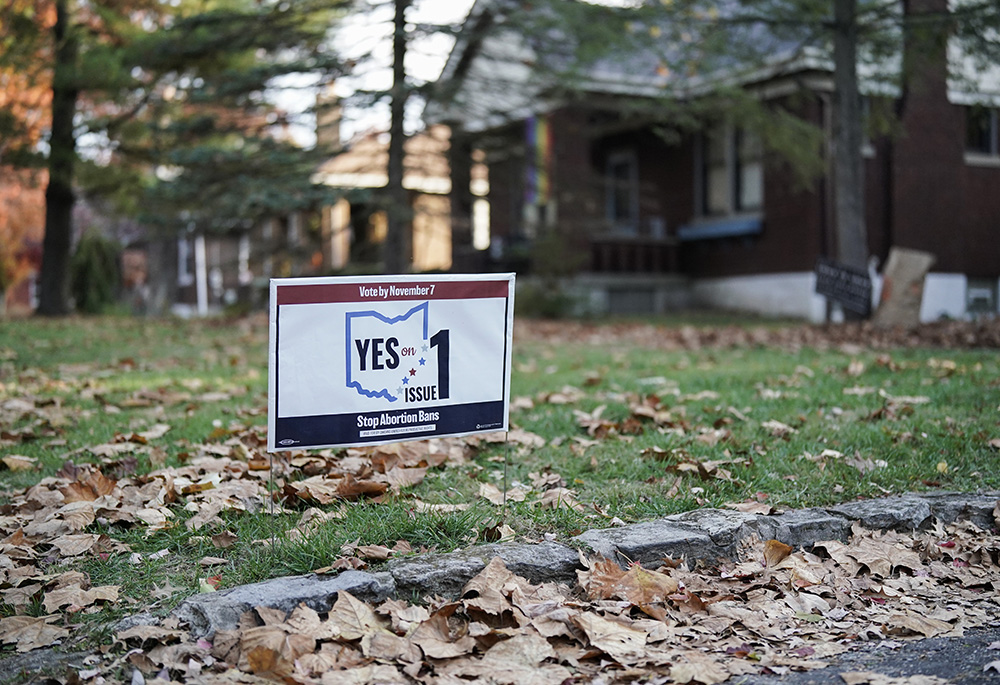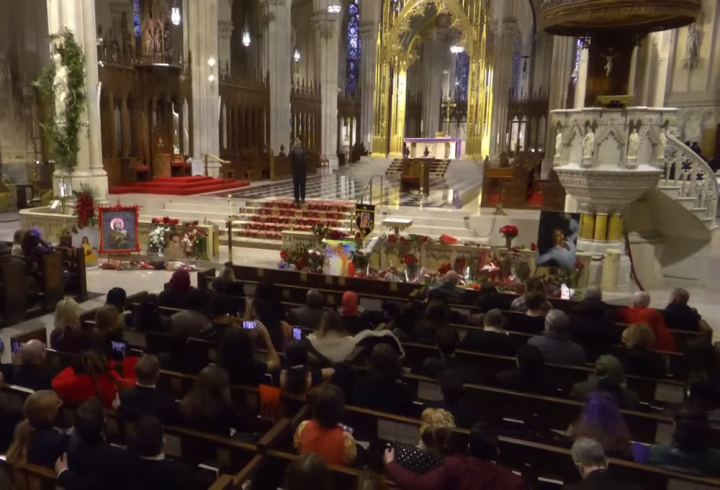
The Nov. 7 passage of an abortion rights amendment for the Ohio state constitution was the latest in several significant electoral defeats for the Catholic Church since the U.S. Supreme Court in 2022 overturned its landmark ruling in Roe v. Wade.
And with Democrats who ran on abortion rights platforms prevailing in the Kentucky gubernatorial race and flipping control of the Virginia General Assembly, the off-year election results in 2023 provide more evidence of a disconnect between the Catholic bishops’ outspoken anti-abortion advocacy and the nation’s electorate, including Catholics in the pews.
« The separation between the American bishops and the laity on this and so many other issues is a grand canyon, it’s a chasm, » said John White, a political science professor at the Catholic University of America.
Before the Supreme Court’s June 2022 ruling in Dobbs v. Jackson Women’s Health Organization — which overturned the court’s 1973 decision in Roe — political analysts told NCR that the specter of strict abortion restrictions seemed more theoretical to voters, despite the warnings of Democrats and organizations like Planned Parenthood that voting for Republicans would lead to Roe‘s downfall and draconian anti-abortion bans.
« Now it’s very different. Now people are rethinking what they think about abortion, not only whether it’s morally acceptable or not, but also who is the right person to make these decisions, » said Cathleen Kaveny, a law and theology professor at Boston College.
Kaveny told NCR that « catastrophic » cases such as that of a 10-year-old Ohio girl who became pregnant from rape and had to travel to Indiana to receive an abortion in 2022, when her state’s « heartbeat law » was still in effect, have convinced voters that they cannot trust politicians, the Catholic Church or the pro-life movement to make those kind of difficult decisions.
« I don’t think that’s going to be going away anytime soon, » Kaveny said.
Nearly 57% of Ohio voters on Nov. 7 voted yes on Issue 1, a ballot initiative to amend the state constitution to recognize the right to « make and carry out one’s own reproductive decisions, » including on abortion. The amendment takes effect 30 days from the election.
For months, the Catholic bishops in Ohio spoke out in homilies and recorded videos urging Catholics in the Buckeye State to reject Issue 1. Catholic leaders organized Zoom calls and presentations with clergy, physicians, educators, lay leaders and others to mobilize the faith community against the measure.
« We’re confident we got our message out to the Catholic faithful, » Brian Hickey, executive director of the Catholic Conference of Ohio, told NCR two days after the amendment’s passage.
Hickey said it was « a dark time for us within the Catholic Church and all people who believe in the dignity of life from conception. » He attributed the ballot measure’s passage to its proponents « who pummeled Ohio with their TV commercials and digital ads, » and he claimed they « outspent the no-side by tens of millions of dollars. »
Setting its eyes to the future, Hickey said the Catholic Church in Ohio will focus on reaching « the next generation » with its message that protecting life in the womb is a social justice issue, and connected to all threats to life, « so that in 10 to 15 years we’re not in the same position we are in today. »
Hickey’s comments were in line with the responses from leaders and organizations in the anti-abortion movement who in the hours after the Ohio ballot measure’s passage pointed fingers to a deep-pocketed pro-abortion lobby that they said uses « deceptive ballot measures » and relies on sympathetic mainstream media coverage. They added that they would not be discouraged.
« There is no right to slaughter a child. Never has been, never will be. We will not back down. We will not give up. We will redouble our efforts, » Lila Rose, an anti-abortion activist who attained notoriety by recording undercover videos at Planned Parenthood, posted on X.
However, that kind of unbowed and uncompromising political rhetoric has thus far failed to resonate with voters. Since Roe was overturned, voters have decided to either preserve or further liberalize abortion rights in seven states: California, Kansas, Kentucky, Michigan, Montana, Vermont, and now Ohio.
Further illustrating how abortion rights are prevailing in both liberal and conservative states, media reports indicated that preliminary exit polling in Ohio — a state which has trended more conservative in recent years — showed that one in five Republicans and nearly two-thirds of independents backed Issue 1.
« The results in Ohio offer another clarifying moment for U.S. bishops and the pro-life movement generally, » said Kim Daniels, the director of Georgetown University’s Initiative on Catholic Social Thought and Public Life.
Daniels told NCR that « effective advocacy for each and every life » begins with listening to and engaging with those who see things differently, as Pope Francis has emphasized in his calls for a « culture of encounter » that eschews a culture war footing.
« It means working within the political context as it actually exists, » Daniels said. « Most of all, it requires active solidarity with women and children, including robust advocacy for the public material and social support that an authentic culture of life would offer. »



